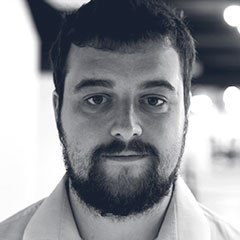Elon Musk has been subject to a wave of self-created criticism lately. His claim that he had a deal to take electric-car maker Tesla private at $420 a share, his ongoing Twitter spat with the cave rescuer of a youth soccer team in Thailand, and his joint-smoking appearance on a radio podcast have made him look vulnerable, troubled and tarnished his reputation.
Despite the ensuing turbulence and apparent flaws in his ability to control his emotions, Musk remains one of the most vital entrepreneurial talents we have today. His ingenuity and dedication continuously bring fresh and progressive ideas to bear. Solar City, Tesla and SpaceX – all his ventures have a bright, if challenging future. He is the world’s most daring entrepreneur and a rare business leader who is interested in mankind as a whole and wants to explore how tech can change the world we live in for the better.
Musk sold online payments firm Paypal for $1.5bn ten years ago and has evolved into an iconic entrepreneur, capturing the public imagination as a crazy-mad-genius figure – part industrialist, scientist, philanthropist, superhero, known for his ability to come up with out-of-this-world ambitions and then pursue them with vigour, emotion, intelligence and self-discipline – until now, maybe.
Most take Musk’s wild ambitions and boasts about the future he will create with a pinch of salt. His companies have missed deadlines and recorded massive financial losses. However, the popularity of Tesla’s electric cars, and the launch of Falcon Heavy earlier this year capped a string of successes that make you think, maybe he can pull this off.
Musk is the epitome of entrepreneurial bravado, endeavour and ego, human folly and genius rolled into one. Musk’s adventures are vibrant and audacious, but there has never been a time when the spirit of innovation hasn’t been burning bright and yanked back, when each of his ventures facing crisis and things not going in his favour.
For Musk, every silver lining has had a cloud. His career is overflowing with setbacks. Very few people could bounce back from being ousted as CEO of their own company and getting fired while on honeymoon (Paypal), and survive a major car crash, personal bankruptcy and cerebral malaria. As much as his hits inspire, his misses offer valuable lessons to startup founders everywhere.
His passion found its calling when in 2004, Musk invested heavily in Tesla, founded a year earlier by Martin Eberhard and Marc Tarpenning. Tesla is a quixotic venture, a niche electric car company in a nation addicted to petrol. Having received hefty Government bailouts, in 2010 it became the first American car company to float on the stock market since Ford in 1956, and his focus on renewable energy solutions kicked in.
Musk is an irrepressible Howard Hughes like figure, but his timeline reveals a whopping sixteen failures since 1995 on his journey to date. That’s nearly an obstacle every eighteen months, at least one every other year – Space X had sixteen successful launches in 2017, but then Tesla recalled 123,000 cars in 2018.
Musk’s hurdles relay a documentary of epic failures, but he’s endured, so how did he turn things around? We know all about resilience – the stories of James Dyson (he spent five years working on a prototype for his bagless vacuum and built 5127 prototypes which just didn’t make the cut) and Joanne Rowling, with twelve rejections of the Harry Potter scripts.
Professor Melissa Schilling, from New York University’s Stern School of Business, has been watching Musk’s escapades and recorded her thoughts about him in Quirky: The Remarkable Story of the Traits, Foibles, and Genius of Breakthrough Innovators Who Changed the World.
Musk is one of eight innovators whose traits, foibles and genius she focused on – together with Albert Einstein, Benjamin Franklin, Dean Kamen, Nicola Tesla, Marie Curie, and Steve Jobs. What made these folk so spectacularly inventive? Schilling illustrates the following traits these innovators –
Grit They all had grit. Their successes seem to have been attained through sheer force of will, investing remarkable effort and persistence in executing their ideas, often in the face of failure and opposition. Every breakthrough innovator demonstrates extraordinary unrelenting effort and persistence.
Work ethic They pursue their projects with remarkable zeal, often working extremely long hours, sleep less and at great personal cost – Musk has been divorced three times. Most of them worked tirelessly because they found work extremely rewarding and experience the pleasure of ‘flow’ from working incredibly hard (i.e. work was autotelic, rewarding for its own sake).
Self-efficacy The eight studied all exhibited extreme faith in their ability to overcome obstacles from an early age. Steve Jobs had a ‘reality distortion field’, such great faith in his own capacity for reasoning and insight that he felt free to disregard the ‘rules’ that constrained others. This faith in themselves enabled them to think big, fearlessly tackling projects that seemed impossible to others, believing in their ability to overcome obstacles.
Almost all of these innovators exhibited what would have been considered hubris, except that once they deliver on something, it’s not considered hubris anymore, it’s considered self-efficacy. They almost all were considered quite arrogant. Even Marie Curie was considered arrogant, not in an outspoken way like Jobs or Musk, but arrogant in that she was going to persist in doing things despite the fact that, as a woman, she wasn’t particularly welcome in business or science.
Self-reinforcing effect Perseverance and self-efficacy can be self-reinforcing: those who persevere at tasks are more likely to accomplish them, reinforcing their confidence in their ability to achieve what they set out to do. Numerous studies have shown that self-efficacy can lead to greater risk-taking and entrepreneurship.
Idealist All are driven by passionate idealism, a consuming goal that was more important than their own comfort or reputation. Idealism helps focus innovators by making their long-term purpose very clear, helping them to make choices among the competing demands of their attention. It also pushes them to work with intensity even in the face of criticism or failure.
Ego defence Idealism provides a level of ego defence. It helps the innovator to persevere in the face of harsh criticism that many people would find decimating. Idealistic innovators believe that the goals they are pursuing are extremely important and intrinsically honourable and valuable, so they are better able to disregard harsh judgment or failure as merely transitory burdens to be endured.
Having the mentality of a survivor, not a victim, when dealing with any potential crisis, is essential. Avoid thinking like a victim of circumstance and instead look for ways to resolve the problem. While the situation may be unavoidable, you can still stay focused on a positive outcome. Musk is notorious for his ability to press on with ideas despite what other people tell him. Naysayers abound when innovators want to try things nobody has ever done.
Be a constant learner Musk reads the way most people watch TV. Musk is the definition of a bookworm. An avid reader from a young age, when he was in grade school he was reading ten hours a day. All those studied by Schilling’s were fuelled by intrinsic motivation, a true love of learning and invested heavily in self-education, avid and omnivorous readers.
Self-education Following on from the above, all were avid consumers of knowledge, but they followed their own rhythms rather than structured teaching. A surprisingly large portion of breakthrough innovators are autodidacts and excelled more outside the classroom than inside. That is because they do not accept the norms. Norms of consensus are dangerous to innovation and reveal the advantages of helping people to embrace their weird sides.
High level of social detachment Many exhibit a marked sense of ‘separateness’, perceiving themselves as different or disconnected from the crowd. By not belonging, they were buffered from the norms that help to bring groups of people to consensus, and thus are less exposed to conventional wisdom, and their ideas can develop less influenced by those shared by the crowd. When an individual is not well integrated into the social fabric, there is less to lose by being unconventional.
So, please make yourself uncomfortable. Becoming a successful entrepreneur is never a straight line. There are lots of ups and downs and zigzags along the way. As it turns out, how you emotionally handle the downs is key. As Thomas Edison said, I have not failed. I have just found ten thousand ways that won’t work.
But what’s the fun of living a life when you know the outcome already and it’s steady away? Ok, if you never try, you never have to deal with the pain and hurt of failure I’ll give you that. But is that a reason to not do something? Life is also not a contest of ‘my problems are worse than yours’. If it’s attention that you want, get a dog.
There have to be reasons that you get up in the morning and you want to work. Why do you want to work? What’s the point? What inspires you? What do you love about the future you are creating for yourself?
Ever silver lining has a cloud as Musk has found out, but when something is important enough, you do it even if the odds are not in your favour.


